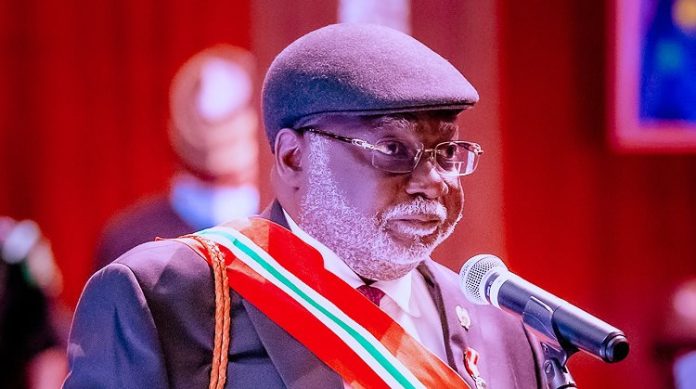Justice Olukayode Ariwoola retired as Chief Justice of Nigeria (CJN) on Thursday, urging the implementation of reforms to alleviate the overwhelming burden faced by the Supreme Court.

In his valedictory address at the Supreme Court in Abuja, Ariwoola highlighted the excessive number of cases currently before the apex court, many of which, he argued, should have been resolved at the appellate level.
Ariwoola criticized the current system for contributing to significant delays in case resolutions, with litigants and lawyers often waiting years for decisions. He emphasized that improving access to justice is crucial to addressing these delays.
Ariwoola’s tenure as CJN began in June 2022, following his appointment as acting Chief Justice by then-President Muhammadu Buhari after the resignation of Justice Tanko Muhammad due to health issues. He was formally sworn in as CJN in October 2022 after Senate confirmation.
Ariwoola’s judicial career commenced in 2011 with his appointment as a Justice of the Supreme Court. Prior to that, he served as a Justice of the Court of Appeal from 2005 to 2011, having been elevated from the State High Court of Oyo State.
Educated at the University of Ife (now Obafemi Awolowo University) where he earned his law degree with honors in July 1980, Ariwoola was called to the Bar in July 1981 and enrolled as a Solicitor at the Supreme Court of Nigeria. His retirement marks the end of a distinguished era in Nigerian.
Justice Ariwoola thanked his fellow justices: the incoming CJN, Justice Kudirat Kekere-Ekun; Justice Inyang Okoro; and Justice Moronkeji Ogunwumiju for their dedication and commitment to the new rules.
He also acknowledged Dr. Muiz Banire (SAN) and the President of the Nigerian Bar Association, Mr. Yakubu Maikyau (SAN) for their contribution.
Justice Ariwoola, speaking on the Supreme Court’s workload, noted that a total of 1,124 cases were filed in the 2023/2024 legal year, which commenced in September 2023 and ended in July 2024.
Of these, 435 were civil cases, 269 were civil motions, 219 were criminal cases, and 102 were criminal motions.
Additionally, although the year was not an election year, 89 political appeals were filed at the apex court, along with 10 originating summons.
He added, “During the same period, we delivered a total of 248 judgments and rulings, with 92 judgments in civil and originating summons cases, 81 judgments in criminal appeals, and 74 judgments in political appeals.”

